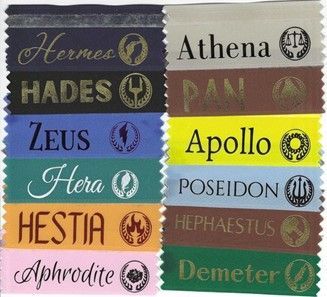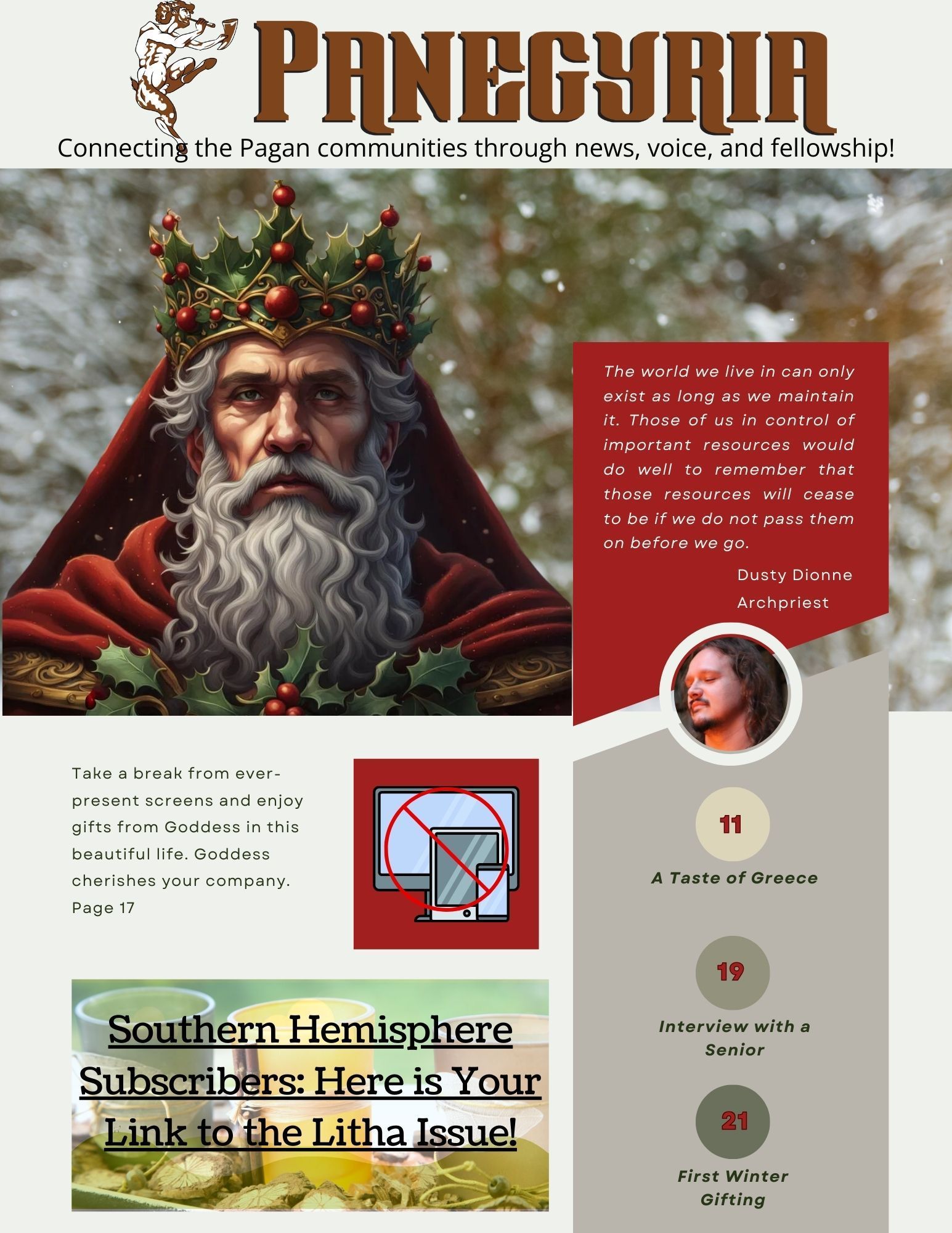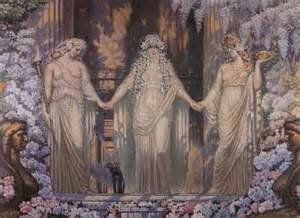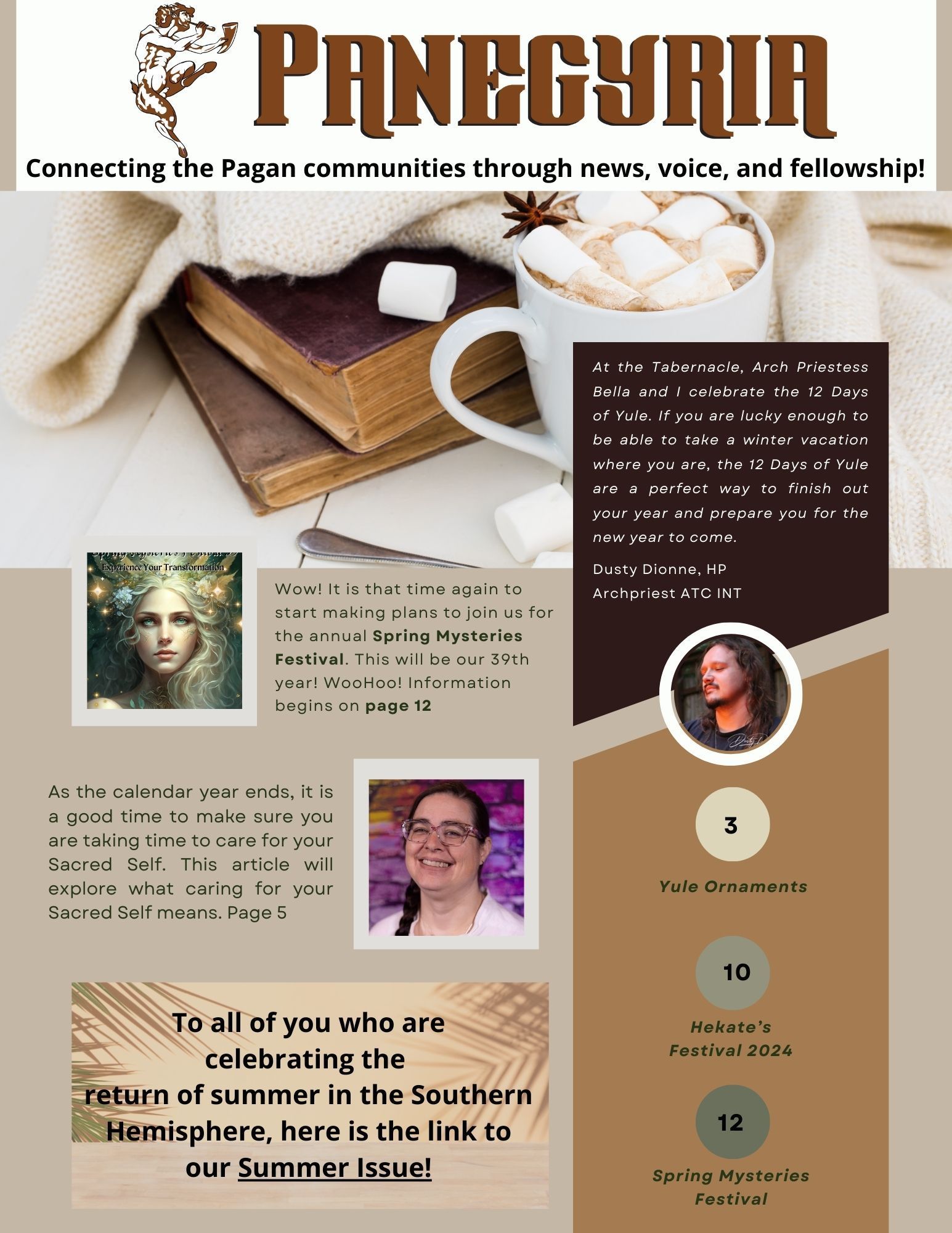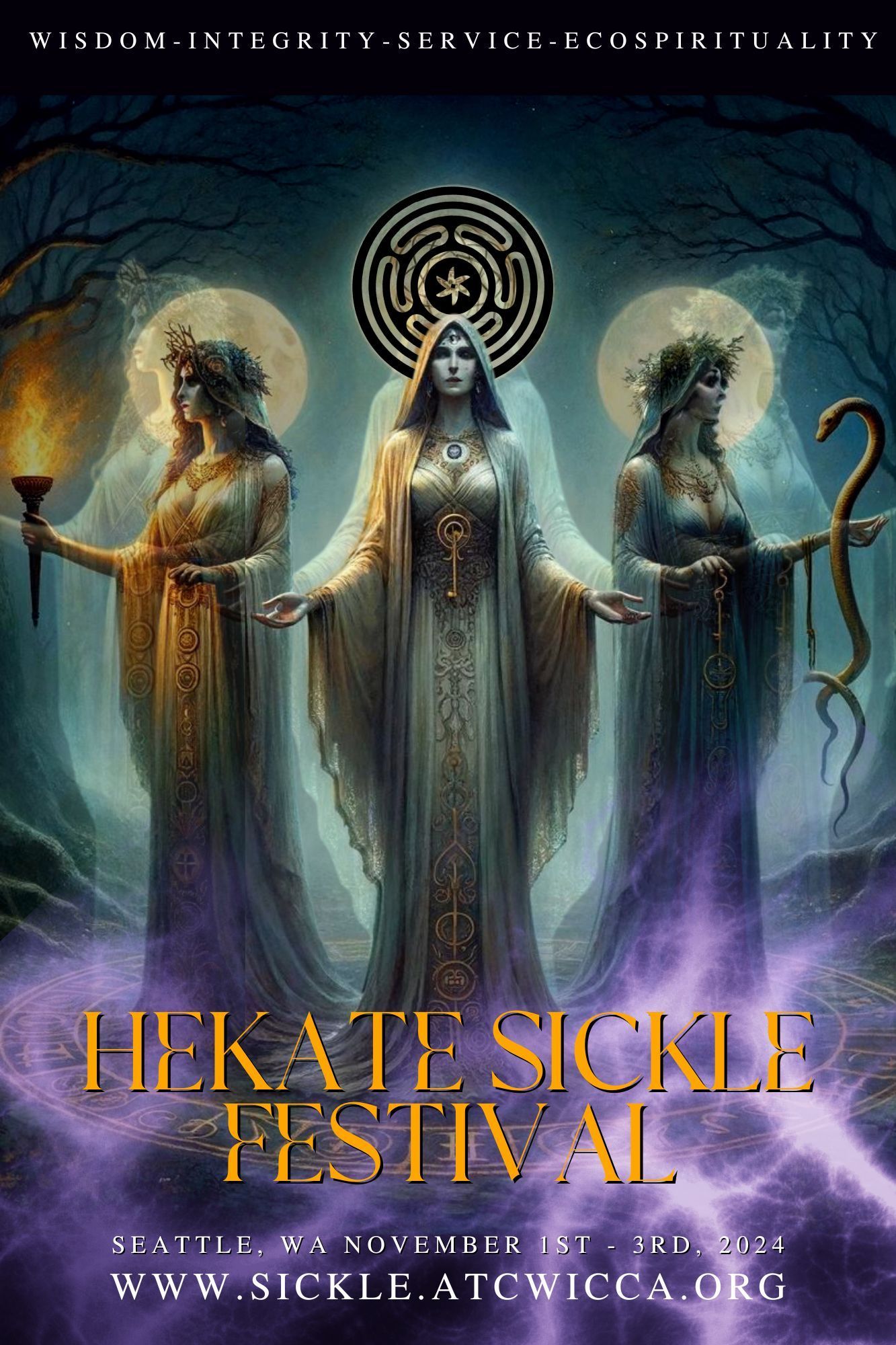The Mystery of Baubo
You've heard of Zeus, Artemis, Aphrodite, and many more Greek gods. And you've probably heard of several renowned mortals of myth: Odysseus, Heracles, Helen, Cassandra. But unless you're a Greek scholar or have been to Spring Mysteries before, there’s a good chance you’ve never heard of Baubo.
Who was Baubo? A goddess, a mortal? And what does she have to do with the Spring Mysteries Festival?
The thing is, no one actually knows if Baubo was a goddess or a mortal. Even when reading scholarly articles, sorting out interpretation and hypothesis from fact is a mean feat. At SMF, the ATC recreates the ancient Mysteries of Eleusis every year, and Baubo has a small but integral part. This year I have the privilege of being the priestess of Baubo.
In this post I’ve tried to condense all the information I’ve dug up, and to present it accurately, but I must dance around Baubo’s exact actions for the sake of the oath I took at the Mysteries of Eleusis.
What we know for sure: In the myth of Persephone and Demeter, Baubo makes Demeter laugh. In the Hymn to Demeter, she is called Iambe. In the Orphic fragments, she is called Baubo.
Some accounts say Baubo was the wife of a poor farmer, in others she was a servant to Queen Metaneira, in others she was a queen herself, in another she was a maenad and wet nurse. She could be the daughter of Pan and Echo. She could herself be the mother of Protonoe (Primal Intelligence) and Misa or Mise (Sexual Lewdness). She has been associated with Hekate, with night creatures, with frogs, who are known for their magical and transformative powers. Mentions of Baubo on dedicatory stones and in temples suggest that she was a goddess with her own cult.
Iambe and Ritual Jesting
Iambus was a type of poetry in Iambic meter, often obscene and satiric. Bawdy jokes and insults were a ritual aspect of the Eleusinian Mysteries, as well as Thesmophoria, another festival dedicated to Demeter. The laughter Iambe causes in Demeter is a pivotal shift in her story. Gregory Nagy says Iambe “provokes laughter and thereby promotes fertility.”
Laurie O’Higgins explains the potency of Iambe’s jesting and the jesting of the women at Thesmophoria:
[Women’s] use of obscenity was believed to have a power denied to men. Sexual and transgressive natures gave them an affinity with sexual and transgressive speech. At the same time, since the rules governing speech were more stringent in the case of women, the power released by women breaking those rules was proportionately greater.
Baubo of the Belly Laugh
Some have conjectured baubo means belly laugh or vulva. Either way, Baubo is an earthy, jolly character.
Maurice Olender suggests there’s a connection between Baubo’s name and several ancient Greek words with the root bau-:
Baubauein (to sleep), baubalidsein (to rock), bakale (a cradle), baubon (a pacifier, possibly a dildo). These reinforce the likelihood that Baubo was a wet nurse or nursemaid, to Metaneira’s son Demophoon.
Bau- is an unusual syllable in ancient Greek, which causes some to hypothesize that Baubo may have been an import from another culture. There is Bau, a Sumerian goddess of the dark waters of the deep. According to W. M. Lubell, the Phoenicians saw Bau (or Baev) as “the mother of divine races…she was the guardian of the source, the well, the cave, hole or entrance, ad perhaps the womb and vulva.” Syria had Baalat, a goddess of love and war. Ancient Egypt had the goddess Bebt, as well as Bast.
No matter how you interpret her, Baubo/Iambe is a tribute to the power and fertility of women’s laughter and women’s bodies. Since it’s so hard to sort through the piles of conjecture about Baubo, I’ve created a timeline of the evidence for Baubo for easy perusal. I hope you find it useful. But if you’re really curious about Baubo, I hope you’ll come to SMF and experience her for yourself.
Timeline of Baubo Appearing in Literature and History
1500 BC The cult of Demeter was established around 1500 BC and the Mysteries are rooted in an agrarian cult in the Mycenean period (1600-1100 BC).
7th Cent. BC Hymn to Demeter written (part of the collection known as the Homeric Hymns, despite not being written by Homer). This may be the first mention of Iambe.
6th Cent. BC Several fragments of Orphic writings refer to Baubo and how she cheers Demeter. (Some think the Orphic fragments were written later, but others make a good case that they were written before the Hymn to Demeter, in the 7th or 6th century BC.)
4th Cent. BC Philochorus, writes that Iambe is the daughter of Pan and Echo.
4th Cent. BC A dedicatory stone is made, listing the names Demeter, Zeus, Kore, and Baubo. This stone was found on Naxos, an Aegean island.
4th Cent. BC or later A sanctuary in Dion has an inscription dedicated to a priestess of Baubo.
2nd Cent. BC – 5th Cent. AD The Greek Magical Papyri, a collection of spells and rituals from Graeco-Roman Egypt, include the name Baubo in places, including in an invocation of Hekate. From PGM IV. 2708-84, translated by Edward N. O’Neil: “Come, giant Hekate, Dione’s guard, / O Persia, Baubo Phroune, dart shooter.” Phroune means frog.
1st Cent. BC A marble plaque from Paros is dedicated to Demeter. It lists the names Hera, Demeter Thesmophoria, Kore, Zeus, and Baubo.
1st Cent. AD A marble plaque dating from this period lists the wet nurses or maenads of Dionysus, from the family of Ino of Cadmus (Ino was the original wet nurse of Dionysus). Baubo is the name of one of the three.
170-396 AD The Eleusinian Mysteries started to fade in 170 AD when the Temple of Demeter was sacked by the Sarmatians, and was completely over by 396 AD when Arian Christians destroyed the sacred sites.







